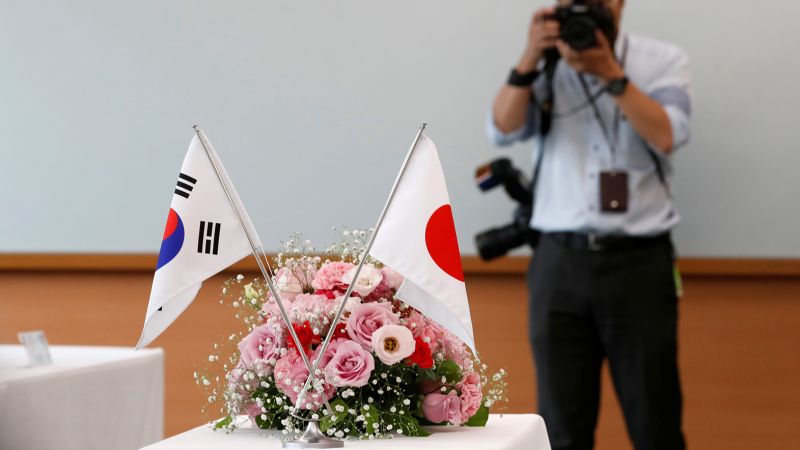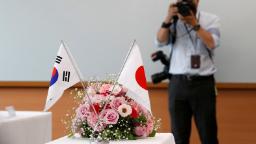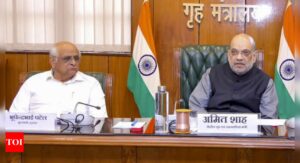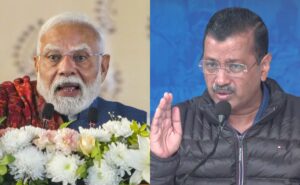US allies South Korea and Japan make deal to ease strains over wartime labor dispute | CNN


Seoul, South Korea
CNN
—
South Korea on Monday announced a deal to compensate victims of forced labor by Japan during its occupation of Korea as the two United States allies try to smooth relations in the face of an increasingly turbulent Indo-Pacific security situation.
US President Joe Biden hailed the move as “a groundbreaking new chapter of cooperation and partnership between two of the United States’ closest allies.”
South Korean Foreign Minister Park Jin on Monday said the government’s Foundation for Victims of Forced Mobilization by Imperial Japan will compensate 15 victims or their family members using private donations.
In 2018, South Korea’s Supreme Court ruled Japan’s Nippon Steel and Mitsubishi Heavy Industry should compensate 100 million Korean won ($77,000) to each of the 15 South Korean victims involved in the lawsuit who were mobilized during Japan’s occupation between 1910 to 1945.
Only three of the 15 victims that participated in the lawsuit are alive today, all in their 90s.
“We welcome the measures announced by the South Korean government today as a way to restore a healthy relationship between Japan and South Korea, which has been in a very difficult situation since South Korea’s Supreme Court ruling in 2018,” Japanese Foreign Minister Yoshimasa Hayashi told reporters.
“The measures announced by the South Korean government are not on the premise that Japanese companies will contribute to the foundation (in South Korea). The Japanese government doesn’t have any particular stance on voluntary donations by individuals or private companies both in Japan and abroad,” he said.
Japan did not agree with the South Korean court’s 2018 decision, and no compensation had been paid by Tokyo.
That led to increased tensions between the two sides, with Japan restricting exports of materials used in memory chips, and South Korea scrapping its military intelligence-sharing agreement with Tokyo during the presidency of Moon Jae-in, the predecessor to current South Korean President Yoon Suk Yeol.
History looms large in the Japan-South Korea relationship and the Japanese occupation of Korea – when many Koreans were brutalized and forced to work – is still a highly emotional issue between the two.
South Korea and Japan signed a treaty in 1965 that normalized relations and was supposed to settle most historical issues.
But South Korea was a military dictatorship at the time, and many Koreans felt the deal was unfair – and today are still fighting against it.
Both sides have also been in a heated dispute for more than 50 years over ownership of a group of islands called Dokdo in Korean and Takeshima in Japanese.
But the Yoon administration has been striving to improve relations between Seoul and Tokyo, especially as the two US allies face an increasingly volatile security situation with North Korean missile tests that threaten both South Korea and Japan and tensions across the Taiwan Strait, an area that both Tokyo and Seoul say is vital to their respective security.
Under Yoon, South Korea has been striving to come up with a “reasonable solution” that is in the common interest of both countries, while respecting the opinions of the forced labor victims, Foreign Minister Park said Monday.
“I think we need to break the vicious cycle for the people in terms of national interest without neglecting such a prolonged strained relationship between South Korea and Japan,” Park said as he emphasized the importance of bilateral relationship.
Monday’s announcement drew immediate praise from the highest levels in Washington with Biden saying both sides were “taking a critical step to forge a future for the Korean and Japanese people that is safer, more secure, and more prosperous.”
Leif-Eric Easley, a professor at Ewha University in Seoul, said both Yoon and Kishida may face a bumpy road selling the deal to voters.
“Both governments will need to convincingly explain the benefits of the agreement for it to weather criticism from opposition parties and advocacy groups,” Easley said.
Lauren Richardson, director of the Japan Institute at the Australian National University, said Monday’s deal is not likely to satisfy victims in Korea.
“It appears in this case that they’re not particularly happy with the agreement, because obviously, if you’re the victim, or you’re the descendant of a victim, you really want the perpetrator to be held accountable,” Richardson said, noting that the Japanese government is not offering any apology or acknowledging wrongdoing.
“It’s not just about money,” she said. “And so they’re going to look at these and say the Japanese government is kind of in a sense trying to avoid taking responsibility.”
One of the living parties to the lawsuit, 95-year-old Yang Geum-deok, slammed the South Korean government after the deal was announced.
“I cannot understand at all. I’ve never seen anything like this in my 95-year-old life,” Yang said at a press conference.
But analysts said Yoon seems prepared to live with such criticism to achieve broad aims.
Corey Wallace, an East Asia politics and security analyst at Kanagawa University in Japan, said he sees Monday’s agreement as “an outgrowth of Yoon’s much bolder embrace of Japan as a ‘partner’ over the last nine months,” Wallace said.
“Both sides have started to adjust their perceptions of the value of trilateral security cooperation and the costs of bilateral antagonism vis-a-vis North Korea,” he said.
“It is also related to broader concerns in both countries about the sustainability of the US military posture in East Asia given both military developments in North Korea and China and recent events in Europe.”





